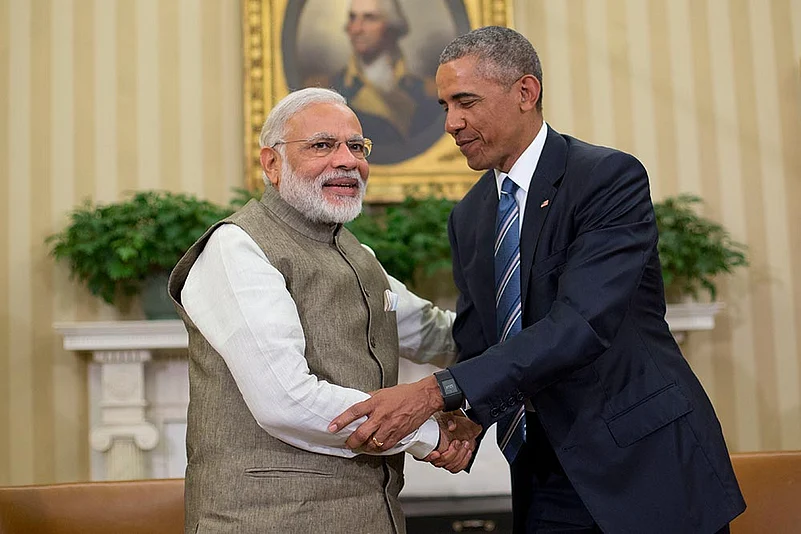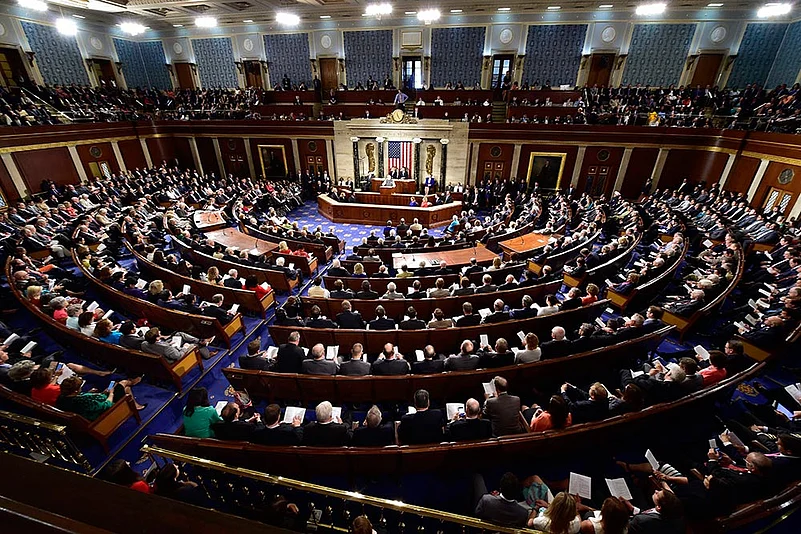A Cartel Of Nuclear Trade
- NSG was created after India’s 1974 nuclear test to deny it access to N-technology
- Nuclear energy’s wide potential makes it essential for India to be in the NSG
- China opposes India’s bid for membership, equating it with that of Pakistan
***
Since becoming prime minister in May 2014, Narendra Modi has shown tremendous enthusiasm in criss-crossing the globe, engaging key world leaders and forging partnerships. But exactly how good these efforts have been will be put to its sternest test later this month when 48 members of the Nuclear Suppliers Group (NSG) decide on whether to grant India a permanent entry into this elite club.
“It is in our strategic interest to be a member of the NSG,” says former Indian diplomat Sheelkant Sharma.
The NSG was created in the aftermath of India’s 1974 nuclear test to deny it access to sophisticated nuclear technology. But the post ‘cold war’ dynamics and India’s growing stature makes it a natural aspirant for an NSG membership. The potential that nuclear energy holds in its application in sophisticated technology makes it essential for India to be in the NSG.
Besides, the NSG, a cartel for commerce in nuclear energy, will also allow India, a future provider of nuclear technology, to engage in this profitable trade. It will also help India to make a shift to nuclear power from its current dependence on fossil fuel. “We are at a cusp,” says Sharma. “We’d rather be in the NSG than outside it.”
An NSG summit is scheduled for June 23-24 in Seoul, where the crucial decision will be taken. But an important NSG session is also underway in Vienna. The discussions there will indicate how things may turn out for India. If things aren’t in Delhi’s favour, it will give Indian diplomats more time to work on the sceptics, to convince them to support India’s candidacy.
But MEA officials point out that despite growing support for India’s entry among members, all NSG decisions are taken through consensus. Thus, a few holdouts can spoil New Delhi’s chance. An obvious candidate among them is China.
Since Pakistan has also applied for a NSG membership—on Beijing’s advice, it’s believed—China insists that applications of both nations should be treated together. Moreover, it insists that those that have not signed the nuclear Non-Proliferation Treaty cannot be let in the NSG. India has not signed the treaty since it feels it is discriminatory and inadequate to prevent nuclear proliferation. Pakistan—one of the world’s biggest proliferators—is also not a NPT signatory. Unless China makes a distinction between India and Pakistan, there is little chance of India getting in the NSG.
China’s opposition isn’t new. For Indian diplomats, the scenario seems like a rerun of what they had to face in 2008. This was when, to make the Indo-US civil nuclear agreement implementable, India had to be given a ‘one-time waiver’ in the NSG. China and a handful of members had fiercely resisted the India-centric waiver. But that resistance, including the Chinese ploy of hiding behind the other nay-sayers to deny New Delhi the privilege, dissolved when president George W. Bush exerted pressure on them to ensure the waiver came India’s way. How vital, therefore, is the US’s role?

Narendra Modi with Barack Obama at the Oval Office on June 7
“The US plays a very important role, not only in declaring its own support but also in convincing other NSG members to support India,” says C. Uday Bhaskar. He adds, “Since most members are close US allies, they may find it difficult to say no in the event a phonecall was made to them by the American president.”
More than the Bush-Manmohan bonhomie, the growing closeness of Obama and Modi has attracted spirited commentary. The just-concluded visit of the Indian PM was his fourth visit to the US in two years. The rapport they share is undeniable. But what does all this translate into? More importantly, will Obama do for Modi what Bush did for Manmohan Singh?
Indications suggest that the situation in 2008 and the one prevailing now are different. Former Indian diplomat Rakesh Sood cites three reasons. “One, the US-China equation has changed. Two, unlike in the past, Pakistan is also in the scene, having applied to be a member of the NSG, and thirdly, China, unlike in 2008, has made its position clear—arguing that applications of both India and Pakistan should be considered together.”
If China can get a small group of blockers, it may continue to stick to its position. But if combined US-India diplomacy succeeds in convincing the other 47 members, it will have to decide if it wants to be the last holdout. For that will mean blatantly opposing India. Will Beijing risk New Delhi’s neutrality in pushing it towards a strong, anti-China alliance with US and Japan? This will be a call China will have to take.
Without doubt, the Seoul NSG summit is forcing people to sift through and scrutinise Modi’s brand of diplomacy. The proof of the genuineness of warmth in foreign capitals and a rousing welcome in the US Congress will be in the fruits they bear.

























